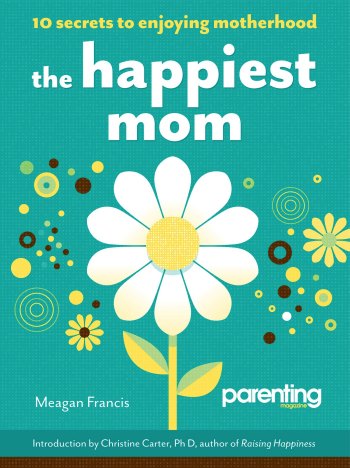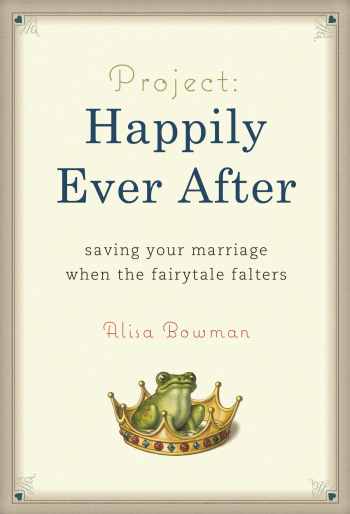I frequently get emails from aspiring writers, bloggers and authors. They tell me that they’ve always wanted to be writers. They ask, “Do you have any advice?” That question often causes all of my thoughts to vaporize from my brain. After all it’s quite difficult to compress four years of J School and nearly 20 years experience into one short email. Usually I write something like, “Just keep trying. Never stop learning. Good luck!” I imagine people get those emails from me and think, “Gee, thanks for nothing.”
I want to be more helpful than that, so I wrote this post so I can refer aspiring writers to it when they ask me for advice. The post contains all of the things I wish I had known when I was just starting out in all of the following fields: newspapers, books, magazines and freelance.
- In the beginning, you will be filled with ambition. You will want your words to change the world, win awards, and gain you much recognition. Your elder peers will tell you that most people lack the maturity and life experience to write anything other than drivel for at least a decade. You will become angry and set out to prove these people wrong. You will believe that you alone can be the exception to this rule. Ten or so years later when you are finally writing words that move people, you will realize that your elder peers were right and you will be humbled.
- Read—a lot.
- Study the craft of other writers. Never stop studying the craft of other writers.
- Stop looking for short cuts to becoming a better writer. You become better by writing and by reading good writing. There is no substitute for either.
- You will find that most professional writers are irritated by the question, “Do you have any advice?” If you ask enough professional writers this question, you will likely hear one or more of them sarcastically say something like, “Gee, I’ve always wanted to be a brain surgeon. Do you have any advice?” It’s for this reason that you should ask very specific questions like, “I have this piece that I can’t place anywhere. Here are all of the outlets I’ve tried. Do you have any suggestions?”
- Never stop learning. Go to conferences. Read blogs about writing. Buy and read books about writing. Attend lectures about writing.
- Just when you think you’ve mastered technology, it will change. If you fail to embrace this, you will end up in therapy.
- It would be nice if you could just do the one thing you love and are good at. In reality, you will spend a good portion of your time marketing yourself, asking people to pay you, doing accounting, networking, and pitching story ideas to editors. Accept it as part of the job or you will end up in therapy.
- Help other writers whenever possible.
- If you want people to read and respond to your words, write for the reader and not for yourself. Words are not about what you want to say. They are about what other people want to read.
- Before you become a writer, you will think that the title of “writer” is glamorous. It’s only after you become one that you will realize that most of society thinks of writers as people who goof off and drink coffee all day long. As a result, they will ask you to watch their children during the day, to walk their dogs, and to go shopping with them—because they assume you don’t have anything better to do.
- You don’t have to write about Pulitzer worthy topics to change the world with your words. You can change the world by writing about people who rarely receive attention and recognition. You can change the world one person at a time by being kind and compassionate with every editor you deal with. And you can do it by changing the lives of your readers: helping them to become healthier, happier, smarter, more relaxed, and more motivated to help their fellow humans in need.
- You will suffer from writer envy. You will envy other writers for their Amazon sales ranks, book deals, awards, magazine placements, titles and even for their friends. If you fixate on how they don’t deserve what they have, you will only create unnecessary misery for yourself. Rejoice in the good fortune of other writers. It will open up the creative energy you need to create similar good fortune in your own career.
- You will get rejected – a lot. This does not mean that you suck, should change careers, or don’t have what it takes. Every famous writer you can think of has been rejected many, many times.
- Your writing will be criticized—a lot. It will be criticized by readers who wish you’d written something else. It will be described as “stilted” “unimaginative” “disappointing” and “nothing new” by reviewers. It will be torn apart by wanna-be and aspiring writers who envy you. And it will be ripped to shreds by various editors. If you embrace the criticism and learn from it, your writing will improve. If you ignore it and rail against it, your writing won’t mature and you will end up in therapy.
- There will be times when you will be convinced that you are washed up, have no more good ideas, and should never have become a writer in the first place. It’s almost certain that you feel this way because you haven’t been getting enough sleep or because you have PMS—or both.
- It’s okay to use passive voice as long as you are doing it for a good reason.
- The best cure for writer’s block is a mortgage. If that doesn’t work, try taking a nap or a walk.
- If you want to make a living as a writer, then learn two important skills: 1) How to write about any topic, even topics you know nothing about 2) How to write about the same topic over and over again. You will do both in your career.
- When interviewing people, shorten the wind up and get to the questions faster.
- When interviewing people, stop talking about yourself so much. Ask questions. Listen. Ask more questions.
- You will make mistakes. When you do, apologize.
- Lots of people will help you advance in your career. Thank them.
- Deadlines are important. If you are going to miss one, let your editor know.
- You will spend your career dreaming that some day you will write the perfect piece—the one that requires not one change by an editor. This is a nice pipe dream, one that most writers share but few ever experience in real life. After all, editors edit. That’s their nature.
- There will be a few people who believe in you. There will be many who don’t. Learn how to believe in yourself.
- No award or accomplishment will ever give you the satisfaction of a thank you letter from a reader whose life your words changed for the better.
- You will spend many years wondering when you will “make it.” One day you will know you have must have made it at some point because you no longer wonder about when it will happen.
- If you want to get hired again, find out what your editor wants and then write it. If you don’t want to get hired again, write what you think your editor should want.
- Start with the big picture and slowly work your way to the small. Nail down the outline, then fill in the information, then add the rich voice and funny turns of phrases. Finally get the spelling and grammar down.
- Early in your career you will worry that someone will discover your weakness and broadcast to the world that you are a terrible speller. Later in your career, you will tell people, “I’m a terrible speller” and it won’t phase you because you will know that you are a great idea person.
- There will be times when you show your writing to friends and family and notice that they don’t really care. At first this will anger you. It’s important to remind yourself of two things. 1) They are not your audience. 2) How would you feel if they offered to take you with them to work for a day so they could show you what they do for a living?
- There will be many times during your career when you will consider becoming something else. Eventually you will realize that there is nothing you would rather do than write.
What do you wish you could tell your younger self? It can be about writing, about your career, about relationships or about life in general?
A professional journalist, Alisa Bowman is the author of The 7 Day Slim Down and Project: Happily Ever After, a memoir of how she saved her marriage. If you enjoyed this post, you will no doubt love her updates on Facebook and Twitter.

 I know, I know, you came to this site because I write about how to have a happy marriage and not about how to have a happy divorce. Still, not all marriages can be saved. If yours is one of the ones that can’t, I still want you to find happiness. You deserve it. You don’t deserve to be mired in anger, resentment, fear and other types of negativity. You deserve better, and you can have it.
I know, I know, you came to this site because I write about how to have a happy marriage and not about how to have a happy divorce. Still, not all marriages can be saved. If yours is one of the ones that can’t, I still want you to find happiness. You deserve it. You don’t deserve to be mired in anger, resentment, fear and other types of negativity. You deserve better, and you can have it. The transition into motherhood stands out as one of the most potent pro-depressants I’ve ever experienced. The first few years of my daughter’s life were tough on me. I was sad, anxious, grumpy, resentful, angry, and downright physically ill most of the time.
The transition into motherhood stands out as one of the most potent pro-depressants I’ve ever experienced. The first few years of my daughter’s life were tough on me. I was sad, anxious, grumpy, resentful, angry, and downright physically ill most of the time.
 Tired of complaining about my husband’s clothes-dropping habits and hearing him grumble to me about what a mess the fridge was, we agreed recently that we needed to stop whining and do something about it. Complaining is so darn impotent; there’s an inherent resignation in every complaint that things will not change.
Tired of complaining about my husband’s clothes-dropping habits and hearing him grumble to me about what a mess the fridge was, we agreed recently that we needed to stop whining and do something about it. Complaining is so darn impotent; there’s an inherent resignation in every complaint that things will not change.
 On December 28th, I will celebrate the birth of my book
On December 28th, I will celebrate the birth of my book